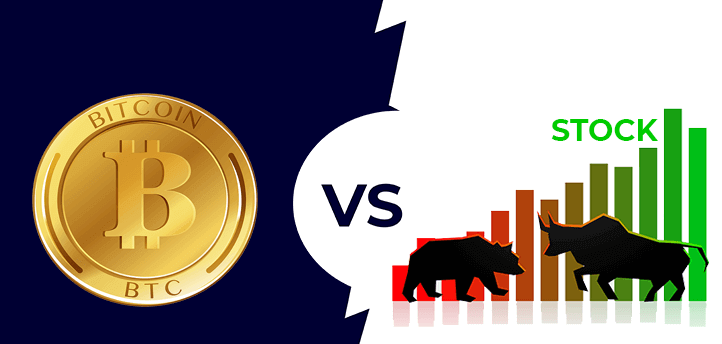Will crypto become a main highlight compared to stocks in 2025?


In 2025, crypto may continue to capture significant attention, possibly outshining stocks in terms of media and public interest due to its high volatility, innovation in decentralized finance, and increasing adoption by large financial institutions. However, while crypto might dominate as a highlight for innovation and speculative investments, stocks are likely to remain the primary choice for stability and consistent growth among institutional and long-term retail investors.
Several factors could keep stocks as a more reliable core investment option. Crypto still faces regulatory uncertainty as governments worldwide, including the U.S. and the EU, push for stricter regulation to control risks and prevent illegal activities CoinMarketCap MarketBeat. Although institutional interest in crypto, like Bitcoin ETFs and blockchain technologies, is rising, the volatility of crypto remains significantly higher than that of traditional stocks. This volatility, while attractive to high-risk investors, may not appeal to those seeking stability and predictable returns WorldCoinIndex.
Additionally, while crypto could see increased appeal as a “digital gold” or “safe haven” asset amid geopolitical shifts, it is likely to act as a complement to stocks rather than a replacement. Most institutions and individual investors still view stocks as foundational assets due to their regulatory framework, stability, and established track record CoinMarketCap WorldCoinIndex. Therefore, while crypto may feature prominently in the spotlight for its growth potential and innovations, stocks are expected to remain the mainstay in diversified investment portfolios.
Comparison of Crypto and Stocks: Pros and Cons
Investing in crypto and stocks offers different characteristics and benefits. Here’s a comparison that can help in understanding the fundamental differences between them.
1. Advantages of Crypto Investment
High Profit Potential: One major appeal of crypto is its high growth potential. Bitcoin and some altcoins have shown significant returns in a short period, attracting investors willing to take high risks for substantial returns.
Accessibility and Transparency: Crypto operates on a decentralized system through blockchain technology, allowing for transaction transparency. Moreover, crypto can be accessed 24/7 without time restrictions, giving investors complete control over when they want to trade.
Digital Asset Diversification: Beyond Bitcoin and Ethereum, there are thousands of other crypto assets with different applications, like DeFi (decentralized finance) and NFTs (non-fungible tokens), allowing investors to choose assets that align with their interests and goals.
2. Disadvantages of Crypto Investment
High Volatility: Crypto prices are often highly volatile, with daily price changes that can reach tens of percent. This volatility can bring significant gains but also presents high risks for investors, especially beginners.
Lack of Regulation: The crypto sector is less regulated than stocks. While governments and financial institutions are working to increase oversight, inconsistent regulation across countries can make these assets more susceptible to market manipulation and scams.
Technological Risks: Although secure, crypto investments are not free from technical risks, such as losing access to digital wallets or hacking on insecure platforms. Losing a private key can lead to permanent asset loss.
3. Advantages of Stock Investment
Security and Regulation: The stock market is regulated by agencies like the SEC in the United States and the OJK in Indonesia, which ensures transaction security and protects investors from illegal practices. This clear regulation makes stocks a more stable and secure investment compared to crypto.
Dividends and Ownership Rights: Stock investments provide ownership in a company along with the opportunity to earn dividends. This serves as a form of passive income and can be an additional income source beyond capital gains.
Fundamental Indicators: Stocks have metrics that enable investors to assess a company’s performance, such as P/E ratios, ROE, and regular financial reports. This data helps investors make informed decisions based on a company’s stability.
4. Disadvantages of Stock Investment
Market Time Constraints: Unlike crypto, which can be traded 24/7, stocks are usually only traded during market hours, which can limit investors looking for more flexibility.
Slower Growth: Large-cap stocks generally offer steady but slower growth than crypto, which can rapidly increase in a short time. Investors seeking quick, short-term gains may find stocks less attractive.
Dependence on Company Performance: Stock values are heavily dependent on company performance and economic conditions. In times of recession or internal company issues, stock prices can plummet.
Which is Better?
Both offer potential gains but come with significant risks. Crypto suits high-risk investors looking for diversification and more trading flexibility but must be ready for volatility and regulatory uncertainty. Stocks are more stable and safe due to established regulation and transparency in company performance, but their growth potential tends to be more moderate.
